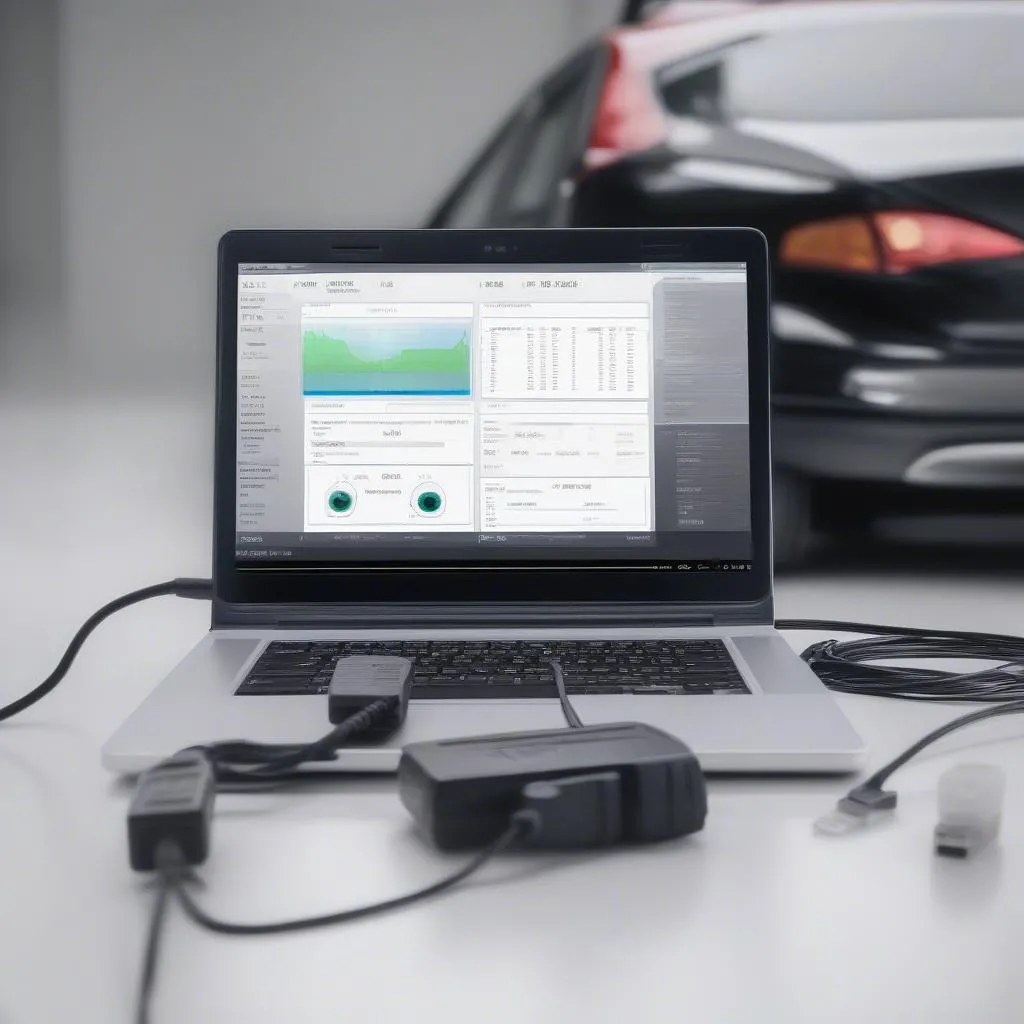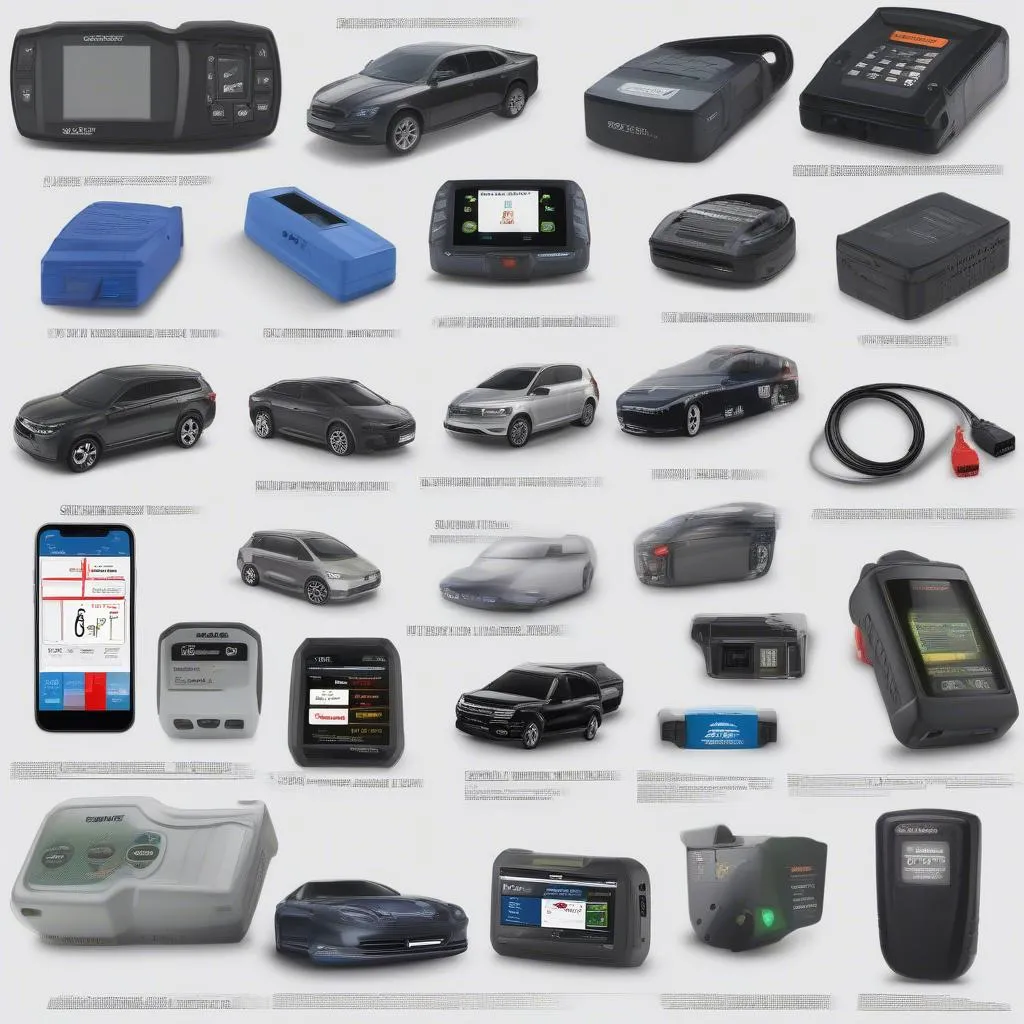Have you ever felt like you’re playing a game of automotive roulette when your car starts acting up? Imagine being able to peer under the hood of your vehicle, understand the cryptic messages flashing across your dashboard, and diagnose problems with the precision of a seasoned mechanic. Well, with an OBD scanner for your laptop, you can do just that!
What is an OBD Scanner for Laptop?
An OBD (On-Board Diagnostics) scanner for laptop is a tool that connects to your car’s diagnostic port (often located under the dashboard) and allows you to read and interpret real-time data from your vehicle’s computer system. Think of it as a translator between your car’s language and your understanding. This data can be used to identify and diagnose a wide range of issues, from engine malfunctions to faulty sensors.
Why Use an OBD Scanner for Laptop?
The Mechanics Perspective:
For a mechanic, having an OBD scanner for a laptop is a critical tool. It helps them identify problems faster, saving time and money for both the mechanic and the car owner. Imagine a mechanic trying to diagnose a complex electrical issue without a scanner, it’s like trying to find a needle in a haystack. They can access detailed data about engine performance, fuel consumption, emissions, and more.
The Technical Perspective:
From a technical standpoint, an OBD scanner allows you to access a wealth of information about your vehicle’s performance and health. It provides insights into engine timing, sensor readings, and even specific fault codes that your car’s computer system is throwing. This information is invaluable for identifying potential problems before they become major issues.
The Economic Perspective:
For car owners, an OBD scanner can help you save money on unnecessary repairs. Imagine going to a mechanic because your engine light is on, only to be told it’s just a loose gas cap. With an OBD scanner, you could have diagnosed the issue yourself and saved yourself the cost of a visit to the mechanic.
OBD Scanner for Laptop: A Deeper Dive
Common OBD Scanner Features
Reading and Clearing Diagnostic Trouble Codes (DTCs):
- Read DTCs: An OBD scanner reads codes stored in your vehicle’s ECU (Electronic Control Unit) that indicate a potential issue.
- Clear DTCs: After diagnosing and fixing a problem, the scanner can clear the error codes, effectively resetting the check engine light.
Data Logging and Live Data:
- Data Logging: The scanner records data over time, which can be used to identify trends and diagnose intermittent issues. Imagine your car is throwing a code, but only under certain driving conditions. Data logging helps capture that crucial information.
- Live Data: You can see real-time data streams from various sensors, like engine RPM, speed, fuel pressure, and temperature, providing a real-time picture of your car’s health.
Other Capabilities:
- Actuator Testing: The scanner allows you to activate components like fuel injectors or solenoids, helping you test their functionality.
- Vehicle Information Retrieval: You can retrieve information about your car’s VIN (Vehicle Identification Number), mileage, and other data.
- Customization Options: Some OBD scanners offer custom dashboards and reporting features.
Choosing the Right OBD Scanner for You:
With so many options available, choosing the right OBD scanner for your needs can be overwhelming. Here are some key factors to consider:
Compatibility:
- Vehicle Compatibility: Not all OBD scanners are compatible with all vehicles. Make sure the scanner you choose is compatible with your car’s make, model, and year.
- Protocol Compatibility: Older vehicles (pre-1996 in the US) might require a different protocol than newer vehicles. Check that the scanner is compatible with your vehicle’s protocol.
Features:
- Basic vs Advanced: Consider your needs. Do you just need to read and clear codes, or do you want more in-depth data logging and analysis?
- Software: The software that comes with the scanner should be user-friendly and intuitive.
Price:
- Budget: OBD scanners come in a wide range of prices, so set a budget before you start shopping.
OBD Scanner for Laptop: Frequently Asked Questions
Q1: Do I need a special laptop for an OBD Scanner?
A: Not necessarily! Most OBD scanners are compatible with standard laptops running Windows, Mac OS, or Linux. However, it’s essential to check the scanner’s compatibility requirements before purchasing.
Q2: Is it difficult to use an OBD Scanner?
A: Using an OBD scanner is generally straightforward, especially if you have basic computer skills. Most scanners come with clear instructions and user-friendly software.
Q3: Can I use an OBD scanner to modify my car’s performance?
A: While some OBD scanners offer tuning options, it’s essential to note that modifying your car’s performance can void your warranty and potentially cause damage. Proceed with caution and consult with a qualified mechanic if you plan to make any performance modifications.
OBD Scanner for Laptop: Examples and Recommendations
Example 1:
 OBD Scanner for Laptop
OBD Scanner for Laptop
Example 2:
 Popular OBD Scanner Brands
Popular OBD Scanner Brands
OBD Scanner for Laptop: Conclusion
An OBD scanner for a laptop can be a valuable tool for any car owner, whether you’re a seasoned mechanic or a curious driver. It can help you diagnose problems, save money on repairs, and gain a better understanding of your vehicle’s health.
If you have any questions or need assistance choosing the right OBD scanner for your needs, don’t hesitate to contact us. Our team of automotive experts is available 24/7 to answer your questions and provide personalized support.
Ready to unlock the secrets of your car’s performance?
Contact us now via WhatsApp: +84767531508 for expert guidance and support!
Share your experiences with OBD scanners in the comments below!
Want to learn more? Check out our other helpful articles: